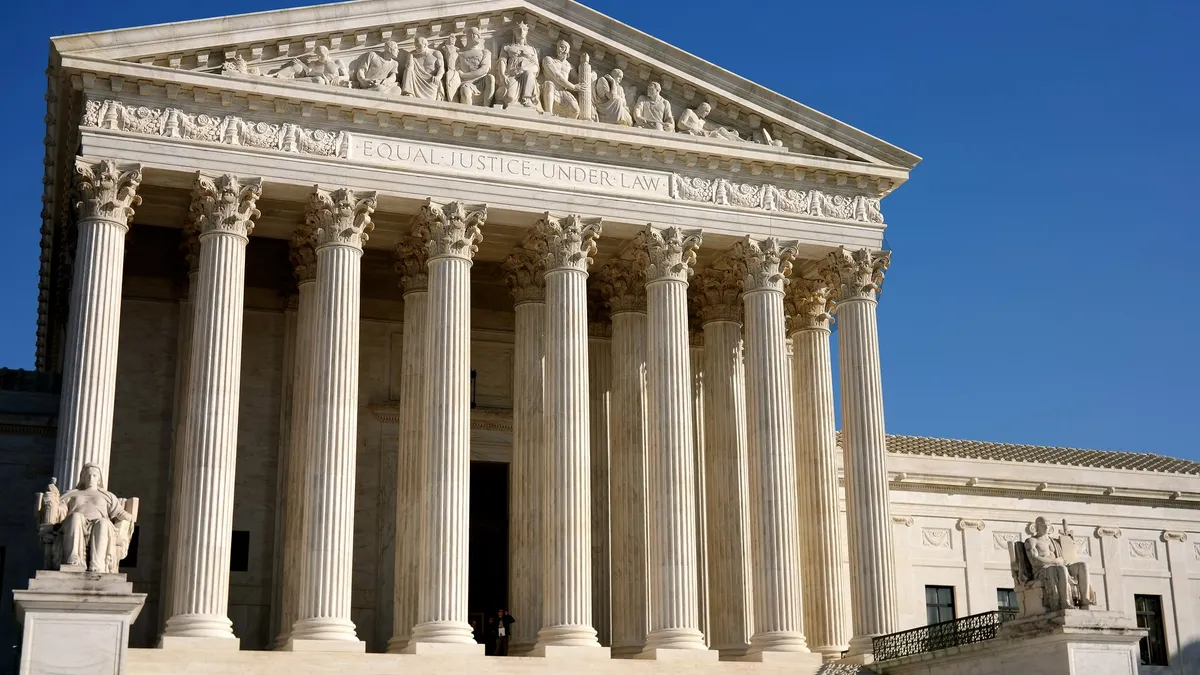Dive Brief:
- A majority of adults, 63%, said the U.S. Supreme Court should not ban colleges from considering race and ethnicity during the admissions process, according to a new joint survey from The Associated Press and NORC at the University of Chicago, a nonpartisan research institution.
- But 68% also said that race and ethnicity should have little to no importance when colleges make admissions decisions. Around three-quarters of respondents similarly dismissed factors like family donations to colleges and applicants’ legacy status.
- High school grades are the most popular admissions factor among those polled, with 62% of respondents saying they should be very or extremely important. Nearly half of respondents, 47%, said the same about standardized test scores, making them the second most popular option.
Dive Insight:
This past fall, the Supreme Court heard oral arguments in lawsuits challenging the use of race-conscious admissions at Harvard University and the University of North Carolina at Chapel Hill.
The Supreme Court’s decision is expected by the end of June. Legal experts predict the conservative-leaning court will rule against the practice, spurring some college leaders and admissions officials to already be preparing to operate without it.
Because many institutions accept most of their applicants, a ruling against Harvard and UNC-Chapel Hill would impact only a sliver of selective colleges. But research found those selective colleges would struggle to create diverse student bodies if race could not be considered in admissions.
With the newest polling from AP and NORC, Americans appear to stand largely against the high court's potential ban of race-conscious admissions.
Pollsters surveyed 1,680 adults from May 11 to May 15. About two-thirds said the Supreme Court should not prohibit the practice, even when broken down by political affiliation or race and ethnicity.
Some 65% of Democrats and 60% of Republicans opposed the court's intervention, as did 62% of White adults, 62% of Black adults and 65% of Hispanic adults.
The biggest swing in opinion came by education level. Among college graduates, 58% said the court should not ban race-conscious admissions. That number jumped to 65% among individuals with no college degree.
However, political affiliation and race and ethnicity did align with how much weight respondents said colleges should give an applicant's race and ethnicity, the survey found.
Among Black and Hispanic adults, 28% and 21%, respectively, said race and ethnicity should be very or extremely important factors in the admissions process. Only 9% of White adults said the same.
And a large majority of Republicans, 80%, said race and ethnicity should have little to no importance, compared to only 58% of Democrats.
Republicans were also likely to have more faith in the Supreme Court, the survey found. While trust in the institution was low across the board, 22% of Republicans reported confidence in the court. That was true for only 7% of Democrats.














